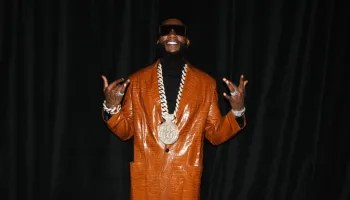In April of 1947, the Brooklyn Dodgers called up Jackie Robinson, making the first African-American man to play in a Major League Baseball game. Robinson went on to play ten years in the majors, becoming a six-time all-star, winning the National League Most Valuable Player in 1949 and was a part of the 1955 Los Angeles Dodgers World Series championship team. Robinson’s achievements on the field culminated in his induction into the Baseball Hall of Fame, also the first African-American baseball player to into the club. The story of Robinson has been the stuff of legend and has been making into the feature film “42” starring the late Chadwick Boseman. Around the same time, Robinson was breaking barriers in Baseball, others were paving the way for black athletes to do the same in other leagues.
Earl Lloyd, National Basketball Association
In 1950, 3 years after Robinson played his first game with the Dodgers, Lloyd, a small forward for the Washington Capitols checked into the game versus the Rochester Royals, making him the first African-American to play in the NBA. Lloyd beat out Boston Celtics guard Chuck Cooper and New York Knicks power forward Nat “Sweetwater” Clifton who played one and four days after his debut. The firsts for Lloyd would continue in a major way for the sport. In 1955 after serving in the Korean War, Lloyd would become a key contributor for the Syracuse Nationals. Averaging a career-high 10.2 points and 7.7 rebounds for Syracuse, Lloyd would help the Nationals defeat the Fort Wayne Pistons 4 games to 3 to win the NBA Title. Lloyd and teammate Jim Tucker are the first black players to play for a championship team.
Lloyd was the first African–American assistant coach in NBA history with the now Detroit Pistons. His eye for the game has a scout help discover hall of fame talents Willis Reed and Earl Monroe.
Willie O’Ree, National Hockey League
In 1958, the “Jackie Robinson of Hockey” made his debut on the ice. Willie O’Ree, joined the Boston Bruins, making him the first African-American to play for the NHL. A Winger from Fredericton, New Brunswick, Canada, O’Ree replaced an injured Bruin, making his debut against the Montreal Canadiens. After another stint in the minor leagues, O’Ree would return to the NHL in 1961. He would go on to score four goals and ten assists in his NHL career, all of in 1961.
Fritz Pollard, National Football League
In the long history of the NFL, you will have to go back to 1919 to find the first Black man to play in the league. After becoming the first African-American player at Brown University, Fritz Pollard broke the NFL’s color barrier (the first time) when he suited up for the Akron Pros. He would lead the time to an 8-0-3 record and win the NFL title. Pollard would join Bobby Marshall as the first black man to play in the league. . Pollard’s legacy continues today due to the Fritz Pollard Alliance. The alliance is a group promoting minority hiring of head and assistant throughout the NFL. The Rooney Rule, created in 2003, requires NFL teams to interview minorities for head coaching openings. Coaches such as Pittsburgh Steelers’ Mike Tomlin have benefited from the rule.
There are others who in some cases, are not “the first” like Chuck Cooper Nat “Sweetwater” Clifton but deserves celebration. After years of segregation, Kenny Washington became the first Black player to sign a contract in the NFL’s “modern-era” in 1946, a year before Jackie Robinson. Months after Robinson crossed the color line, Larry Doby became the First player to go directly to the majors from the Negro leagues with the Cleveland Indians. In 1948, Doby and legendary pitcher Satchel Paige when the African-American players to win a World Series championship. So for Black History Month, we honor all of these legends and others who paved the way for athletes in all sports.
The First: Lloyd, O’Ree, Pollard and Others Who Broke Sports Color Barriers was originally published on blackamericaweb.com


















